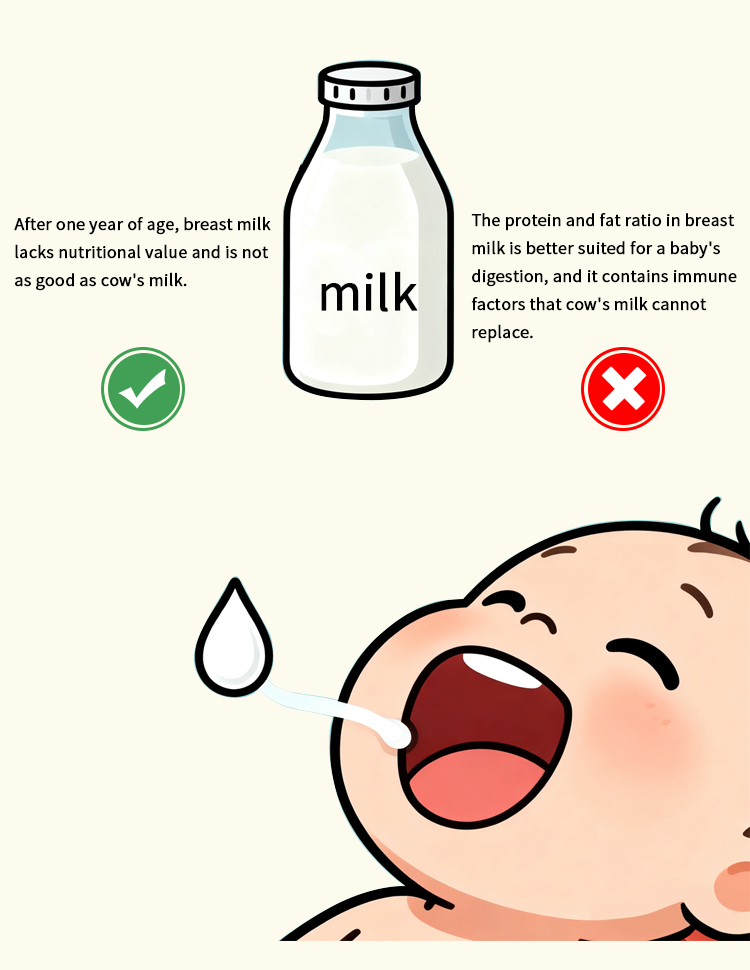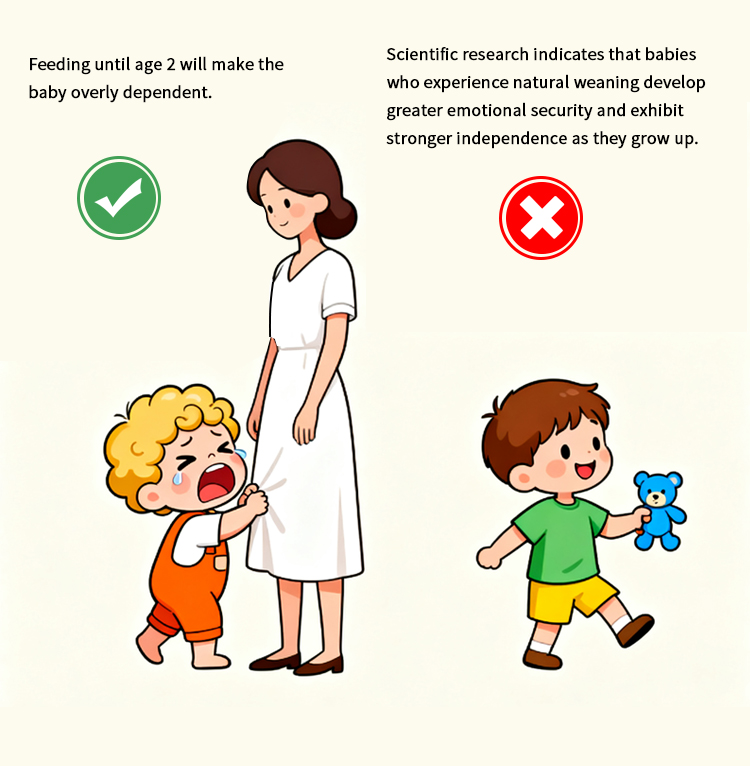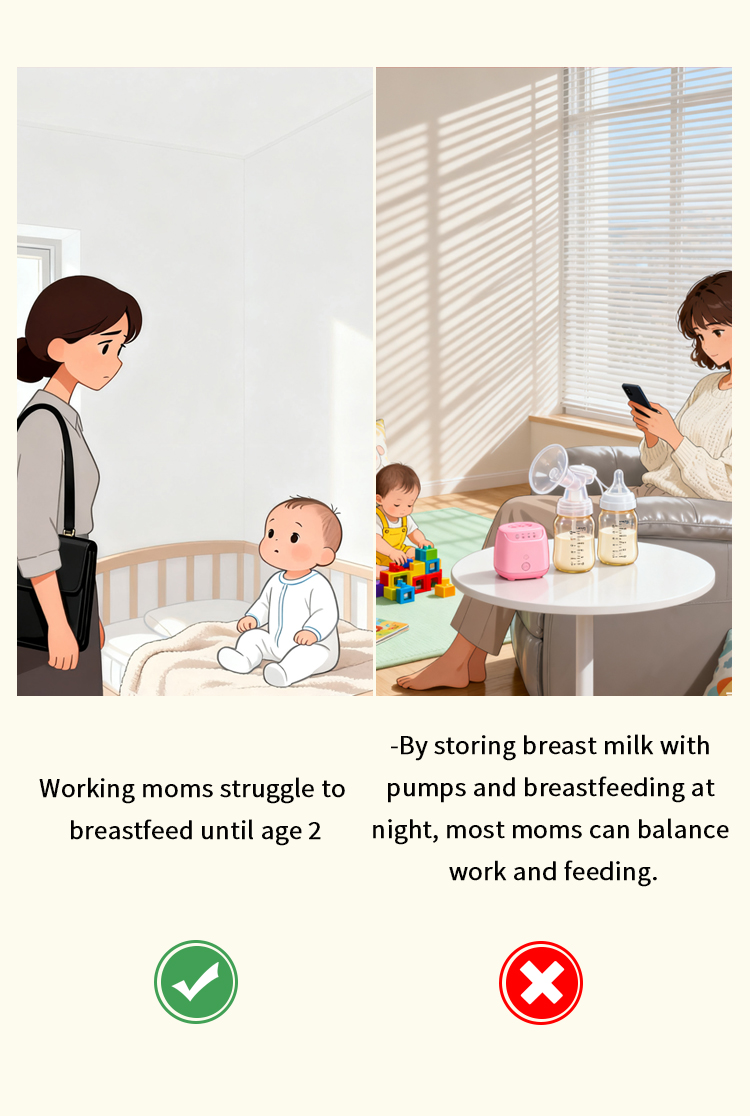Breastfeeding Basics (VII) - How Long Should Breastfeeding Continue? (Part II)
一. Practical Feeding Recommendations: Respect Mother-Baby Preferences, Transition Scientifically
There is no “absolute standard” for breastfeeding duration. The key is to balance the baby's needs, the mother's physical condition, and the family's actual circumstances:
1. Avoid a “one-size-fits-all” approach; feed on demand.0-6 months: Strictly exclusive breastfeeding; no water or complementary foods needed.
After 6 months: Gradually introduce complementary foods (e.g., iron-fortified rice cereal).Avoid one-size-fits-all approaches; feed on demand. 0-6 months: Strictly exclusive breastfeeding; no need to add water or complementary foods.
2.After 6 months: Gradually introduce complementary foods (e.g., iron-fortified rice cereal, vegetable purees), while breast milk remains the primary nutritional source.
3. After 1 year: Solid foods become the main diet, with breastfeeding offered flexibly based on the baby's needs (e.g., before bedtime, during illness).
4. After 2 years: If the baby still desires breast milk and the mother is willing to continue, breastfeeding can be maintained naturally until the baby self-weans.
二. Prioritize maternal health—no need to “push through”
If the mother experiences severe physical discomfort (e.g., recurrent mastitis, severe anemia) or cannot sustain breastfeeding due to work commitments, there is no need for excessive guilt
—formula milk meets the baby's basic nutritional needs, and the quality of parent-child bonding matters more than the feeding method.
三. Natural Weaning Over “Forced Weaning”
Forced weaning may cause anxiety or refusal to eat. Gradually reduce feeding frequency (e.g., daytime first, then nighttime), and use picture books or toys to redirect attention, helping
your baby adapt naturally to weaning.
四. Common Misconceptions Clarified



Breastfeeding is a “choice,” not a “requirement.” Ultimately, breastfeeding centers on mutual benefit for mother and baby—providing optimal nutrition and emotional
support while allowing mothers to experience bonding through feeding. Whether you choose to nurse until age 1, 2, or beyond, the ideal duration is whatever respects your baby's
needs while honoring your own wishes. What truly matters isn't the length of time, but the abundant love and companionship given during feeding—this is the most precious
nourishment for your child's development.
www.jxphome.com
Jiangxi Partner Home Co., Ltd.
About Author
You may also like
-
Customizable Catering Prep Table Solutions Every Commercial Kitchen Needs
-
Is It Safe to Sleep With an Air Purifier On?
-
Symmetrical Phospholipids: Structure, Function, and Pharmaceutical Applications
-
Spring Festival Non-Stop Service: Your Trusted Partner for Uninterrupted Business Growth
-
Choosing the Right Office Acoustic Panels for Your Workspace
